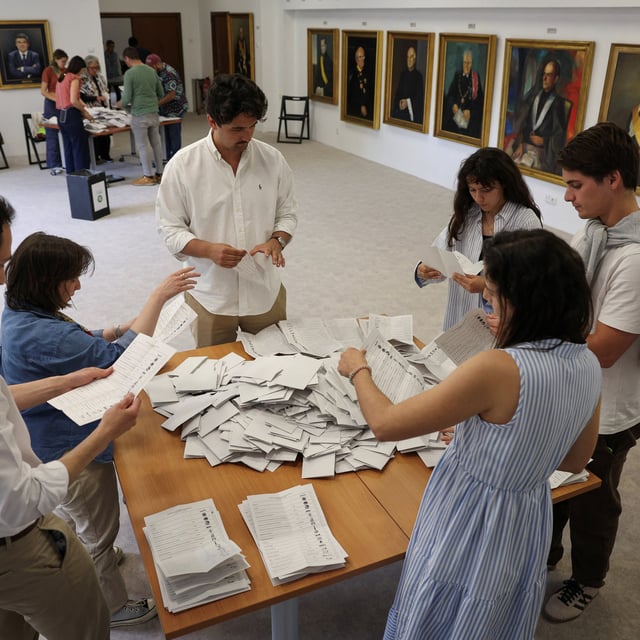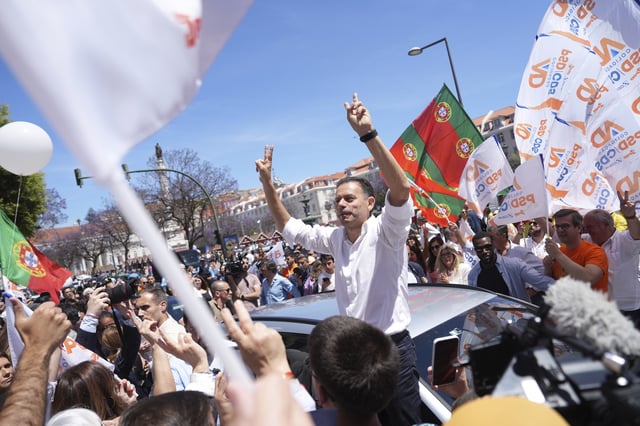Overview
- Prime Minister Luis Montenegro's Democratic Alliance (AD) secured 32.7% of the vote, gaining 89 seats but failing to achieve the 116-seat majority needed to govern outright.
- The far-right Chega party surged to a record 22.6% of the vote, matching the Socialist Party at 58 seats, solidifying its position as a major political force.
- Montenegro has ruled out forming a coalition with Chega, leaving the AD likely to pursue another minority government or limited alliances with smaller parties like the Liberal Initiative (IL).
- The election was triggered by Montenegro’s loss of a confidence vote in March, tied to allegations of conflicts of interest involving his family’s consultancy firm, which he denies.
- Key campaign issues included immigration and housing, with the AD toughening immigration policies and announcing the expulsion of 18,000 irregular migrants, a move criticized as catering to far-right voters.



